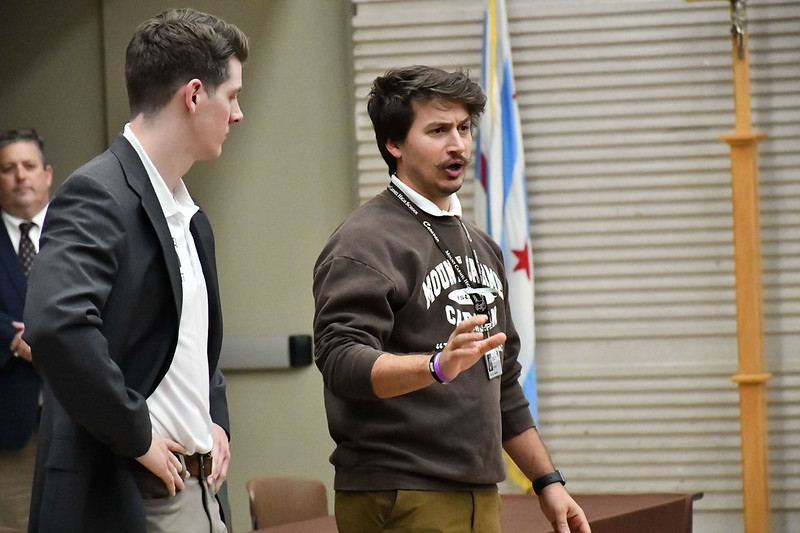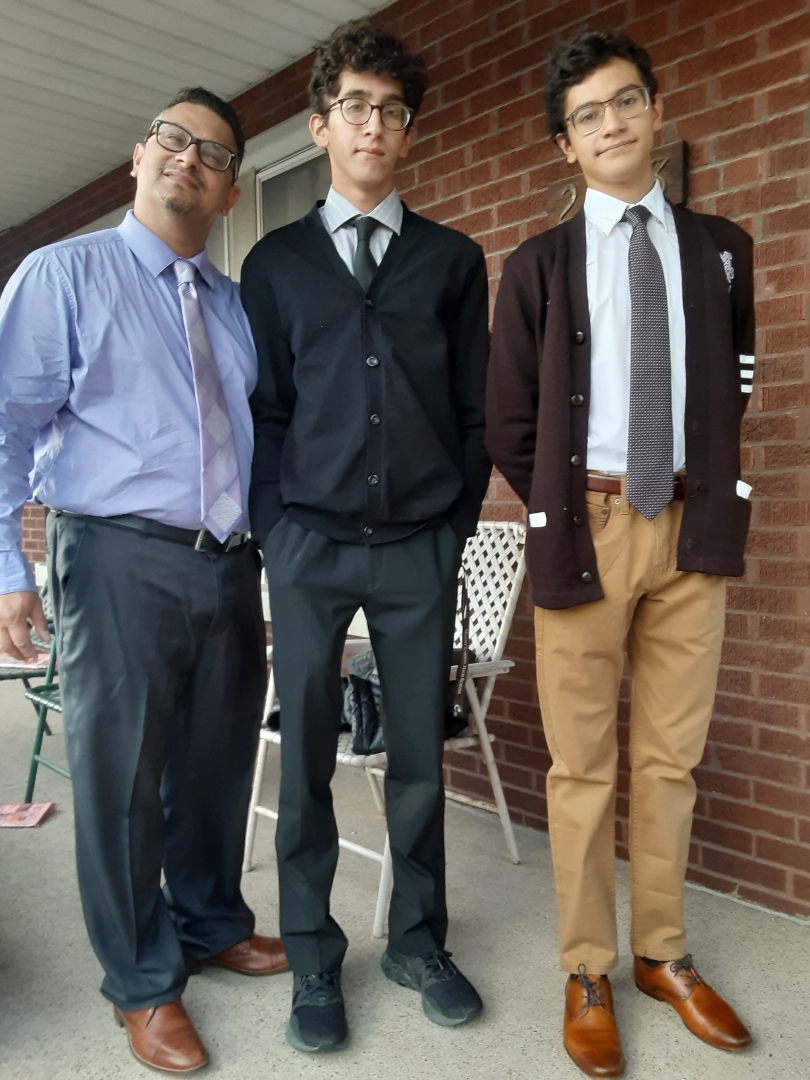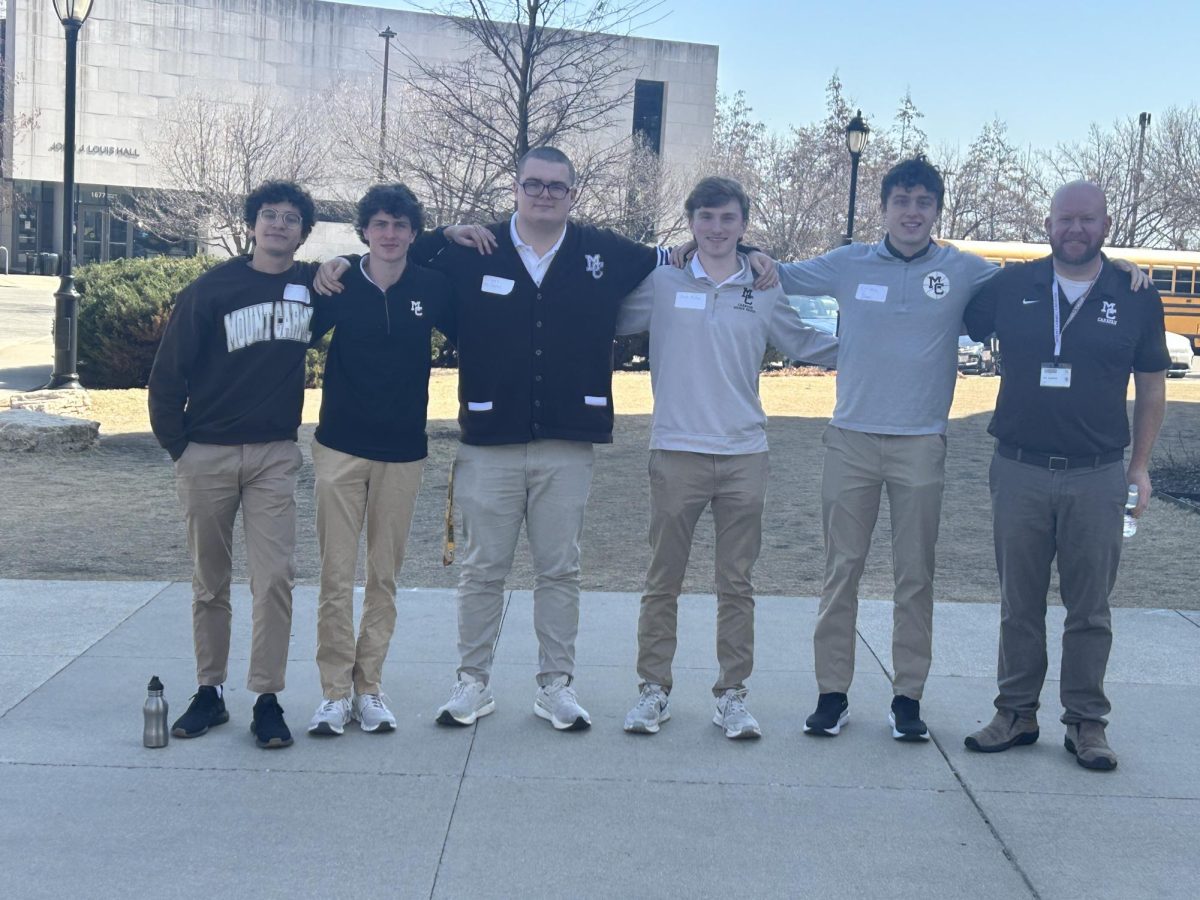It is a general opinion for students across the country that junior year of high school can present the most difficult curriculum. However, honors-level seniors at Mount Carmel may disagree with that statement, as some students are swamped with as many as six Advanced Placement (AP) classes this year.
AP courses are college-level classes for high school students and are often the most difficult courses that a student will take throughout their four years, but they also have many benefits. Aside from preparing students for what a college curriculum looks like, they also offer the chance of earning college credit upon completion.
At MC, there are currently nineteen AP classes offered, starting as early as freshman year. One does not necessarily need to be in the honors and AP level either, as there are several elective APs available to all students in their junior and senior years if a student meets other grade requirements in the previous year.
The problem is not that students do not take enough APs, but that upperclassmen are taking too many.
Seniors in the honors and AP level are overburdened with a disproportionate number of AP classes compared to their previous years.
“I have the hardest course load my senior year,” senior Leonard Siegal says. “It’s not because [my] five AP classes are harder than previous classes, but because I’m taking all five of them at the same time.”
Siegal is in a similar situation as other seniors, as the only way to keep boosting their GPA to maximize their acceptance chances at their colleges of choice is to stay on the AP track. However, half of his APs taken at MC are from this year.
The natural progression throughout the four years increases dramatically. Only AP World History and US Government is offered to freshmen and to sophomores, and three APs are offered to juniors with the ability to take an AP elective junior year. The jump is quite a struggle for many students.
“I understand just having one AP class freshman year, but sophomores should definitely be allowed to take multiple AP classes,” Siegal says. “You could realistically take AP electives [sooner]. I know other schools do that.”
While many students agree with Siegal, some believe that the natural progression of APs is fine in its current state.
“Since the bulk of my AP classes came in junior and senior year, I feel more prepared for college,” senior Jordan Whaley says. “I took [my studies] more seriously and cared more about my future in college, especially compared to when I was a freshman or sophomore.”
Whaley, an honors and AP student throughout his four years at MC, only started taking the exams for these classes once he had an idea of what college and major he wanted to go into.
“I took my first AP test junior year,” he says. “That’s when I had the idea of the type of college I wanted to go to, so I was able to plan my scores accordingly and actually use college credit.”
While this may be true, there is still no denying that some AP classes can be taken earlier in high school. Since some AP elective courses are relatively easier to manage, they should be offered to underclassmen as well.
“Certain classes like AP Economics could be taken as early as freshman year,” senior Ethan Battig says. “It really only involves simple math, so it’s not really difficult.”
This is not to mention that some of these AP electives are already taught by underclassmen teachers.
“Sophomores already have, for example, Mr. Vasquez as a teacher,” says Siegal. “You could definitely take his economics class sophomore year because his teaching style is great for all his classes.”
Now obviously, some AP classes have material too advanced for underclassmen to take, such as the core APs. However, many of the elective APs are either memorization-based or involve simple concepts that underclassmen have already learned.
“[Some] AP classes [could] be taken earlier because students don’t need to have a deep understanding of complex math,” says Battig. “It’s pretty much a memorization test.”
Even if this means that seniors take one or two fewer AP classes, this also means that they have the opportunity to take other electives that interest them.
“For AP Mechanics, I am just not doing well in the class,” says Siegal. “That doesn’t necessarily mean I should just give up, but it’s not something I enjoy doing, that I’m going to be pursuing in college, and that I would even need for college credit.”
With the opportunity to pursue elective AP classes earlier in high school, students like Siegal can take different courses during their senior year while still maintaining a high GPA.
“I wish I would have taken guitar [this year],” he says. “I would have maybe even wanted to take the [newspaper] class and practice my writing in journalism.”
Taking fewer AP classes senior year would be ideal, but nothing is going to change right now. For the seniors who are currently in their final weeks before exams, there is nothing to worry about.
“It could benefit you in the long term, but don’t bend yourself backward over the exams,” says Battig. “Just have a healthy balance, and you’ll do fine.”








